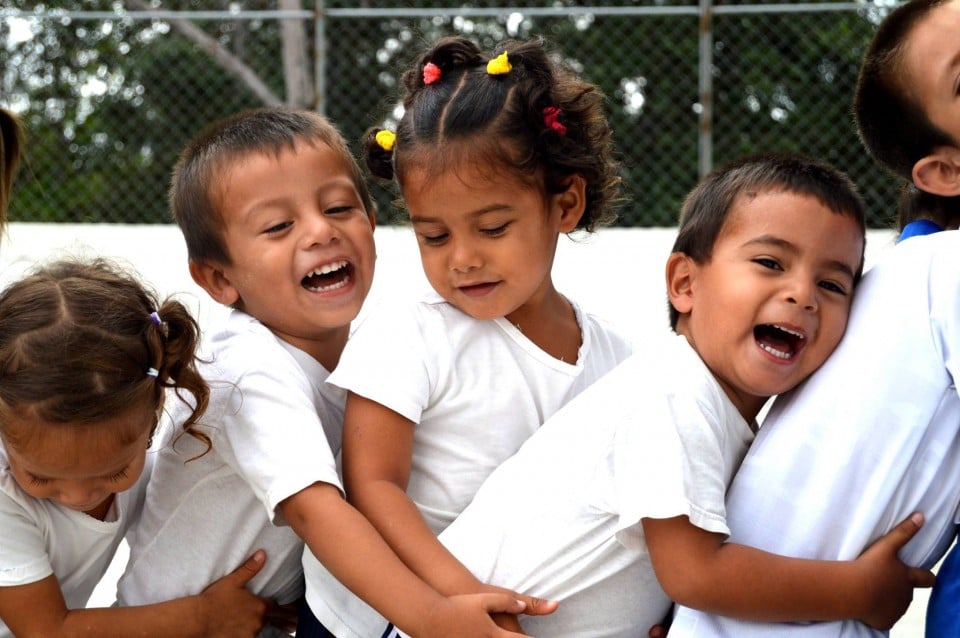 Children at Nuestros Pequeños Hermanos Honduras. Courtesy/NPH USA
Children at Nuestros Pequeños Hermanos Honduras. Courtesy/NPH USA
By LINDA HULL
Vice President
Rotary Club of Los Alamos
“We are a family for children without security,” said Jennifer Turner, development manager of Nuestros Pequeños Hermanos USA, as she described recently to the Rotary Club the mission of the international non-profit organization. “Nuestros Pequeños Hermanos is Spanish for “Our Little Brothers and Sisters.”
Founded in 1954 by Father William B. Wasson, Nuestros Pequeños Hermanos (NPH) “enhances the lives of vulnerable children in Latin America and the Caribbean” by providing group homes, comprehensive health services, and educational programs in the children’s native countries.
At this time, NPH’s outreach extends to nine countries:
NPH fully “supports 3,300 children in these homes with an additional 2,800 community children receiving scholarships, meals, health care, and other support,” Turner explained.
After being ordained as a priest in 1953, Wasson was assigned to a chapel in one of the market districts of Cuernavaca, Mexico. He opened a daycare center for impoverished children, and soon found himself rescuing a young boy from prison for stealing money from a church donation box because he was hungry. Wasson won custody of the boy and the eight others in the same prison cell. This was the beginning of NPH, which Wasson served until his death in 2006.
The children who come to NPH are identified as those who suffer physical and emotional abuse and who are most often in clearly unstable households, shuffled among family members. Many have lived on the streets as beggars, have never attended school, and have lived in unsanitary and dangerous conditions without a permanent family.
When children become part of NPH’s programs, they are given a permanent home, nutritious food, education, and health care. Children are allowed to maintain contact with their extended families; a Visitors Day for relatives is scheduled several times a year. There is no fixed age at which the children must leave the care of NPH; all are encouraged “to stay until they are able to live independently.” Safety and stability, Turner stressed, are the most important elements for sowing seeds of success.
To support independent living, the children are given opportunities that will “empower them so they may overcome poverty and become leaders in their own communities.” Those opportunities include receiving a quality education preparing them to pursue a university or technical degree. Among the graduates sponsored by NPH are doctors, farmers, educators, accountants, artists, mechanics, administrators, and social workers.
Despite backlogs, Turner said that NPH tries to accept as many children as possible. Many in-country governmental and non-profit agencies that serve vulnerable children are not familiar with NPH’s services, so NPH administrators are reaching out “in conversation to consuls” in each country served. Government support differs by country; the “lion’s share comes from individual donors.”
The properties on which the NPH homes are located have been generously donated and “look like extensive school campuses,” Turner said. “They are located near cities, making services and supplies easily accessible,” but are still somewhat isolated.
All of the homes strive to be self-sustaining and have living spaces, kitchens and dining halls, clinics, chapels, and schools. They are also equipped with workshops so children may learn trades, such as carpentry and welding, and with gardens and farms so they may learn agricultural skills. They produce much of their own food.
During the pandemic, a Code Red level was immediately put in place. Visitors and outside activities were prohibited; classes went to online instruction. Fortunately the few Covid-19 cases diagnosed were mitigated quickly. Besides the obvious and worrisome changes made by the pandemic, NPH budgets were compromised by the significant costs of personal protective equipment.
In closing, Turner remarked, “Every child needs a place they can call home.” NPH strives to do this with commitment and enthusiasm for the children in their care.
To learn more about Nuestros Pequeños Hermanos and ways to donate money or sponsor a child, please go to www.nphusa.org.
Jennifer Turner is the Development Officer with Nuestros Pequeños Hermanos USA. She is a member of the SW Regional Team, generating support from donors and volunteers in Arizona, Colorado, Nevada, New Mexico and Utah.
Turner has more than 20 years of non-profit development experience working with many lie-changing organizations including Habitat for Humanity, Easter Seals, and Boys & Girls Clubs. She completed two years of service in the Peace Corps in the agricultural hills of Jamaica. Her experiences abroad have inspired her lifelong love of travel.
The Rotary Club of Los Alamos, through its Club Foundation, is a 501(c)3 non-profit and one of over 34,000 clubs worldwide. Rotary, which now has 1.5 million members, was founded in 1905; the local Club was chartered in 1966. Rotary areas of focus, as noted in above, include promoting peace; fighting disease, particularly polio; providing clean water, sanitation, and hygiene; supporting education; saving and enhancing the lives of mothers and children; growing economies; and protecting the environment.
To learn more about the Rotary Club of Los Alamos and its humanitarian service, contact: President Laura Gonzales at 699.5880 or Membership Chair Skip King at 662.8832.

